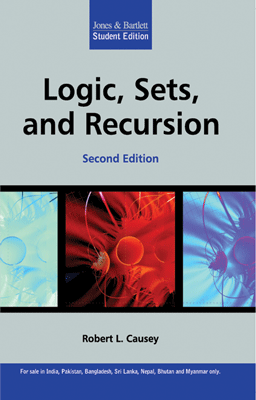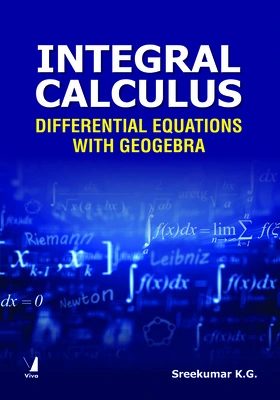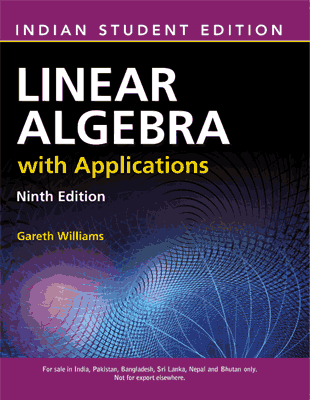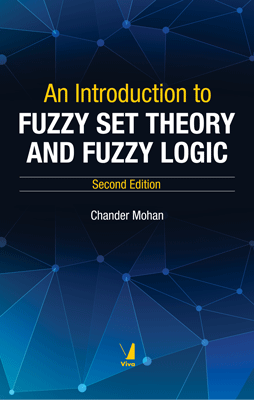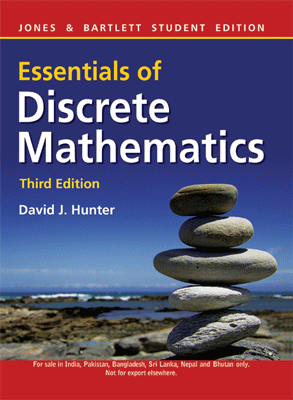Logic, Sets, and Recursion, 2/e
Logic, Sets, and Recursion, 2/e
₹625.50 ₹695.00 Save: ₹69.50 (10%)
Go to cartISBN: 9789380108087
Bind: Paperback
Year: 2010
Pages: 524
Size: 153 x 229 mm
Publisher: Jones & Bartlett Learning
Published in India by: Jones & Bartlett India
Exclusive Distributors: Viva Books
Sales Territory: India, Nepal, Pakistan, Bangladesh, Sri Lanka, Bhutan
Description:
Logic, set theory, and mathematical induction play essential roles in modern mathematics and computer science. Logic, Sets, and Recursion, Second Edition provides students with the tools needed to master these important concepts. This text paves the way for students preparing to enter more advanced math, computer science, and logic courses, furnishing them with the experience necessary to construct rigorous proofs with ease. It is intended to fill the gap between advanced mathematical logic texts and Discrete Mathematics texts that do not treat logic with the depth required in modern computer science. The new Second Edition incorporates a wealth of exercise sets, allowing students to test themselves and review important topics discussed throughout the text.
Key features:
• This text teaches students how to construct and write informal, yet difficult, mathematical proofs using basic set theory, recursive definitions, and mathematical induction.
• Formal languages are emphasized along with formal derivations and elementary metatheory. Relations between formal and informal proofs are discussed.
• Set exercises, which were formerly a supplement, have been moved into the body of the text, enhancing the text's pedagogy.
Target Audience:
This book is an introduction to mathematical logic and related topics for undergraduates.
It is primarily intended for students of computer science, mathematics, and philosophy.
• Math Logic
• Discrete Math
• Set Theory
Contents:
Introduction • The subject matter • Goals and Organization • Assumed background knowledge • Set, numbers, algebra • Functions • Inequality and identity • The presentation.
Chapter: 1. Sentential Calculus • Syntax of the Sentential Calculus • Correspondence to Natural Languages • Semantics of the Sentential Calculus • Some Metatheoretical Concepts • Principles for Sentential Calculus Derivations • Adequacy and Use of Sentential Calculus Derivation Rules • Soundness and Completeness • Strategies for Constructing Proofs • Sentential Calculus Derivation Examples • Conjunctive Normal Form and Resolution Proofs
Chapter: 2. Basic Set Theory • Sets • Extensionality, Predicates, and Abstraction • Some Special Sets and Set Operations • Relations • General Features • Special Kinds of Relations • Functions • Basic Ideas • Compositions and Inverses • Relational Systems
Chapter: 3. Recursion and mathematical Induction • The Natural Number System • Introduction • Peano's Axioms and the Induction Principle • Definition by Recursion • Basic Arithmetic • Some Simple Functions • Additional Arithmetical Definitions • Extensions of Recursive Definition and Induction • Some Additional Applications of the Recursion Theorem • The Well-Ordering of the Natural Numbers • Course of Values Induction • Two Arithmetical Algorithms • Pitfalls of Recursion • Non-Numerical Data • Strings • A Simple Treatment of Lists • Sentential Calculus Expressions • Stacks and Queues
Chapter: 4. Predicate Calculus • Syntax of the Predicate Calculus • Semantical Aspects of the Predicate Calculus • Interpretations and Truth • Tautologous Sentences in Predicate Calculus • Tautological Consequences in Predicate Calculus • Predicate Calculus Derivations • Derivation Rules • Proof Strategies and Examples • Adequacy of the Predicate Calculus Rules • Application Example • Identity and Function Symbols • Extension of the Syntax • Semantics of Predicate Calculus with Identity and Function Symbols • Derivation Rules for Predicate Calculus with Identity and Function Symbols • Use of Identity in Representing Information • Formalized Theories
About the author:
Robert L. Causey - The University of Texas at Austin, Austin, Texas
Robert L. Causey (Ph.D. 1967, Logic and Methodology of Science, California-Berkeley) is Professor of Philosophy and a member of the Artificial Intelligence Laboratory. He has written extensively in the philosophy of science and on logic, artificial intelligence, and the philosophy of mind. He is the author of Unity of Science (1977) and Logic, Sets, and Recursion (1994), and a co-author of Introduction to Artificial Intelligence and Expert Systems (1988). H He has held research grants from the National Science Foundation and the Army Research Office, and is the Philosophical Web Pages Review Editor for the APA Newsletter on Philosophy and Computers.
